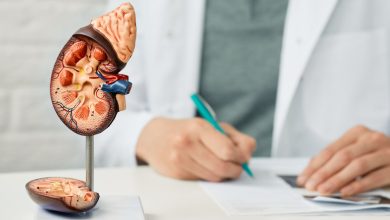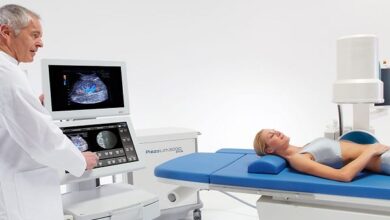Lack Of Sexual Desire – What Causes It?

When a woman has a low desire for sex, it can be frustrating. She can also suffer from additional stress. The fact is that the majority of women experience some degree of low sex drive. However, there is no clear answer as to why some people have it and others do not. In the past, lack of sexual desire was regarded as a part of broader female sexual dysfunction conditions, but recent research has indicated that the symptoms are distinct and can be addressed.
Many illnesses can affect a person’s sex drive, such as coronary artery disease and diabetes. If you have these conditions, it’s a good idea to discuss your situation with a doctor at www.prestigemensmedical.com. They can perform a thorough medical work-up and refer you to a sex therapist if you need additional help.
Women who have had an oophorectomy or surgically menopausal should expect to have a lower sex drive. These changes may happen as a result of hormone deficiencies or problems with blood flow. Some men also have low testosterone levels, and this can be treated with hormone pills or creams. Other medical conditions such as cancer, heart attack, diabetes, and high blood pressure can also weaken a sex drive.
HSDD, or hypoactive sexual desire disorder, is a condition that involves a significant decrease in sexual activity, which is characterized by a lack of orgasms and difficulty maintaining arousal. This can happen at any time, but it can be particularly distressing if it’s accompanied by depression or other psychological issues. It can also cause difficulties with a partner. A woman with HSDD may experience interpersonal conflicts or difficulties in keeping her relationship healthy.
The diagnosis of HSDD is based on the distress of the individual experiencing it. The World Health Organization’s International Classification of Diseases has reached consensus on the definition of HSDD. Symptoms of HSDD can last for more than 6 months. Symptoms include a lack of orgasms, difficulties maintaining arousal, and difficulty with a partner.
Although there are physical and emotional factors that contribute to a lack of sexual desire, there are also a number of social and psychiatric factors that can contribute. Social and psychiatric factors can include issues with communication, cultural beliefs, and peer influences. Psychiatric factors can be caused by an individual’s low self-esteem or anxiety about sexual performance.
Some factors that can increase the chances of a person having a low sex drive are unresolved conflicts, mistrust, and poor communication. Stress management techniques, such as breathing exercises, meditation, and talking to a therapist, can be used to reduce stress and improve sex drive. Also, sexual therapy can help patients gain clarity about their emotions and increase their self-esteem.
Low libido is a common problem that can affect both women and men. Despite the occurrence of a variety of causes, a person with low libido will need to discuss their condition with their doctor. By identifying the specific causes, a person can seek treatment that can help them recover from their condition.
A lack of sexual desire can be caused by many different factors. Some people may have a physical condition such as diabetes or high blood pressure, while others may experience mental health problems such as depression or anxiety. If you’re experiencing a lack of desire, you may want to seek treatment to increase your sex drive.
One of the most common types of sexual dysfunction is hypoactive sexual desire disorder (HSDD). It’s a type of sex disorder that’s caused by a decreased level of libido. People with HSDD have a decreased desire to get sex, but they do it anyway. This can cause emotional distress for the person suffering from the disease and can even have a negative impact on their relationships. Fortunately, HSDD is treatable. The first step is to rule out any physical causes of low libido. You should also get a complete medical examination. Your doctor will be able to look for the cause of the disorder and help you find a solution.
There are a variety of medications and treatments that can increase a person’s sex drive. One common medication is Prozac. Other drugs include tadalafil and sildenafil. Testosterone supplements, hormone pills, and estrogen creams can also be effective in improving sexual function.
Another reason for a low sex drive may be a chronic illness, such as high blood pressure, diabetes, or arthritis. These illnesses can be addressed by changing your lifestyle and medications. However, in some cases, medical tests will not reveal the underlying causes of a low sex drive.
The most common underlying cause of a lack of sexual desire is depression. This can be caused by a combination of personal factors, including past trauma, unprocessed trauma, and interpersonal barriers to erotic interest. In addition, low sex drives can occur due to other health conditions, such as coronary artery disease.
HSDD is a very serious problem, but it’s also very treatable. You can work with a therapist to improve your relationship. Counseling can help you overcome personal and interpersonal barriers to sex. Self-care can also be a valuable tool. When you feel you have no interest in sex, you should be able to identify the reasons for your lack of desire and then talk with your partner about these issues. Talking about your feelings can help you leave any ingrained beliefs behind.
Although HSDD is a disorder that is treatable, it can be a frustrating experience to deal with. Many women and men suffer from it. They’re not able to respond to their partners’ sexual suggestions, and they can also avoid having sex entirely.
HSDD is a very common sexual problem, especially among women. It’s estimated that around 40 percent of women will experience a bout of HSDD at some point in their lives. HSDD is caused by a number of factors, most of which are psychological in nature. Ultimately, the problem is more complicated for women than it is for men.
HSDD is a disorder that affects millions of people. It isn’t uncommon for a woman to suffer from a lack of sexual desire, but if you’re experiencing this, it’s important to seek treatment. Besides helping you to understand why you’re not interested in sex, therapy can also help you to develop a more positive view of your sexuality.
Visit “Prestige Men’s Medical Center
5100 W Kennedy Blvd Suite 180 Tampa, FL 33609
800-541-1019
Monday-Friday 9am-6pm
https://prestigemensmedical.






